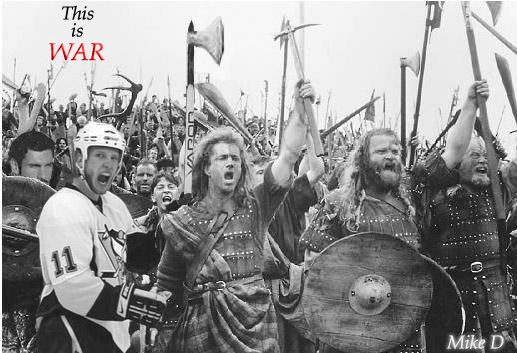Nearly two months ago, I wrote about how a bill passed in the Washington State Senate 47-0 that would exempt junior hockey players from being compensated as employees who should be paid minimum wage. Since then, the amended version of that bill passed in the House on April 15th to a resounding 91-7 vote in favor of the bill, followed by a concurrence of the Senate the following day in a 47-1 vote.
The final version of the bill delivered to Governor Jay Inslee classifies players from the four Western Hockey League (WHL) teams in Washington as “non-employees,” thereby exempting them from the Minimum Wage Act, Industrial Welfare Act, and the Washington Industrial Safety and Health Act. A still ongoing L&I investigation by the State into whether or not the League is in violation of child labor laws would essentially be rendered moot by this legislation. Right now, anyone under the age of 18 in Washington can only work 16 hours per week on school weeks and 40 hours per week on non-school weeks. But WHL athletes practice and play on average 35 hours (sometimes up to 65 hours) per week during their full schedule.
A new section added to the law governing amateur sports in the state reads as follows:
“The legislature recognizes that junior ice hockey teams that are members of regional, national, or internationally recognized leagues provide significant benefits to their players by teaching them valuable athletic skills and interpersonal life skills. These junior teams also provide significant financial support to their communities as tenants of arenas owned, operated, or managed by public facilities districts. The legislature seeks to assist in the financial stability of public facilities districts and to ensure the viability of junior ice hockey in the state by clarifying that these young athletes are not employees of their teams.”
Okay, so Washington clearly appreciates what these teams do to spur the economy in each of their respective communities, but why no mention of the fact that the Seattle Thunderbirds, Everett Silvertips, Tri-City Americans and Spokane Chiefs are all reigning in somewhere between $3.5 and $5 million in ticket revenue per year (self-reported, by the way)? Or that these are all for-profit businesses that “sell tickets to games at arenas that hold 5,000-11,000 people, have corporate sponsorship, do merchandising, and sell TV rights in Canada.”?[1] Or that the Canadian Hockey League, which runs the WHL along with the Ontario Hockey League and Quebec Major Junior Hockey League, receives millions of dollars in grant money from the National Hockey League (NHL) each year?
The fact that this passed so overwhelmingly feels suspect and concerning given the preponderance of evidence showing these athletes are considered employees for all other intents and purposes. For example, albeit in a different country and under different law, the Tax Court of Canada dismissed an appeal by the Brandon, Manitoba Wheat Kings back in 2000 attempting to exempt their players for much of the same reasons as here in Washington. The court found that even though there was an educational component to the contract between the hockey club and the players, the requirement to play hockey “was not inextricably bound to a condition of scholarship.” While the players are offered a year of tuition at the college of their choice for every year they play in the league, the scholarships aren’t always practical for the players to utilize depending on whether or not they want to end up in the National Hockey League. This is because the NCAA prohibits experienced WHL players from playing on their teams. But, they’re more likely to get drafted by an NHL team than from a Canadian school, so they’re forced to reconcile dreams of playing big-league professional hockey or get an education.
Other peculiarities of this legislation passing so overwhelmingly is the paperwork that international athletes must fill out before playing with Washington/U.S. WHL teams. It includes an I-129 form issued by the Department of Homeland Security, which is a Petition for a Nonimmigrant Worker application. If they aren’t “employees” then technically they aren’t “working,” they’re studying, right? Or at least that’s how logic would follow.
Ted Charney, a Canadian lawyer representing former CHL players in class action lawsuits, urged the Washington Senate Commerce and Labor Committee urging them not to pass the bill. But, the four team’s managements cried wolf and it worked. The money appears to be there to compensate these athletes despite claims made that doing so would force these teams to leave Washington. Apparently corporate scare tactics work just as well to keep labor costs down in amateur sports, too. Best of luck to these athletes, and my condolences to your pocketbooks.
[1] https://sports.vice.com/en_us/article/the-fight-to-keep-junior-hockey-players-from-getting-paid
Add The Sports Daily to your Google News Feed!
